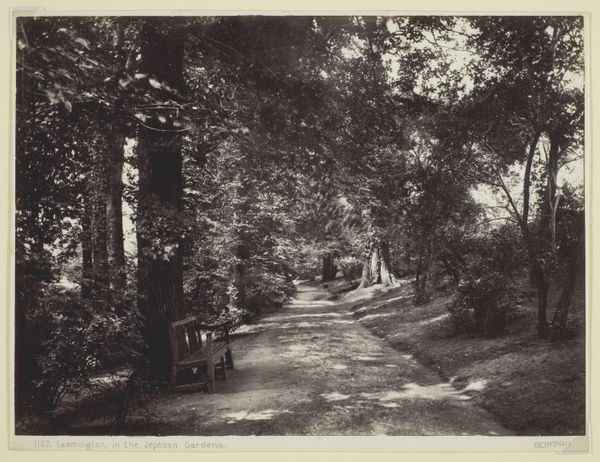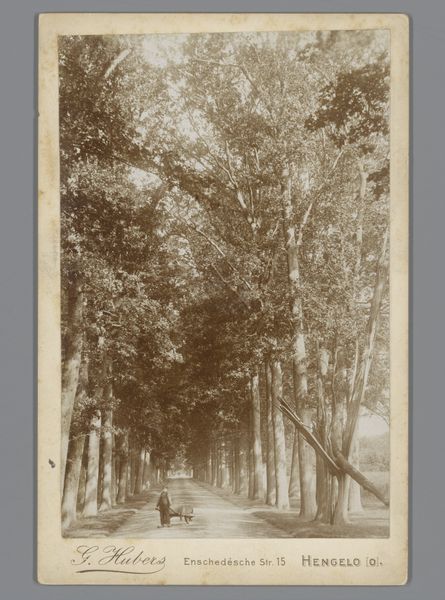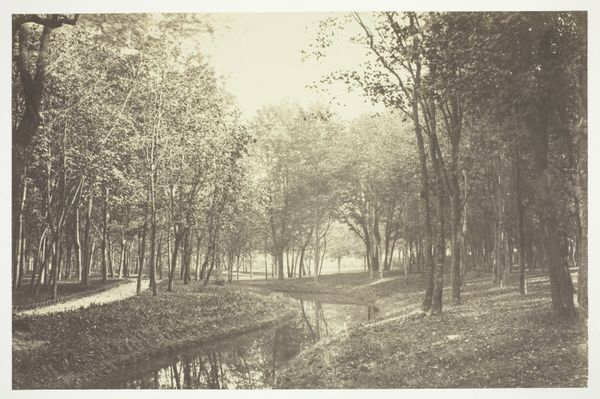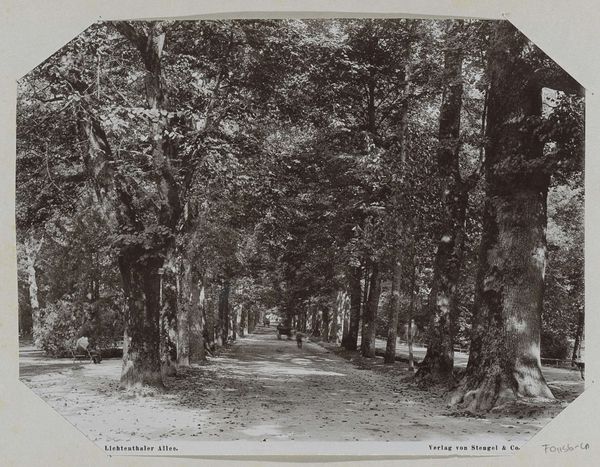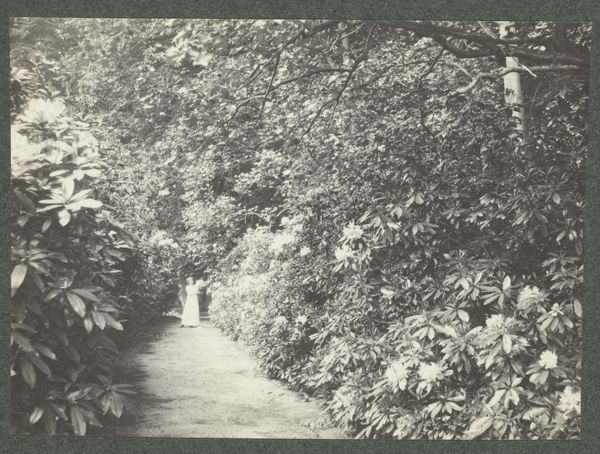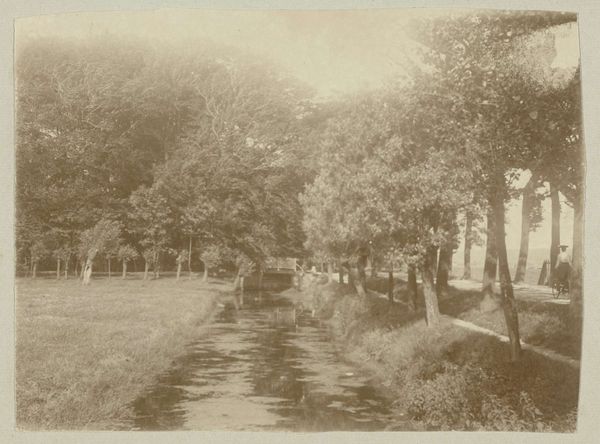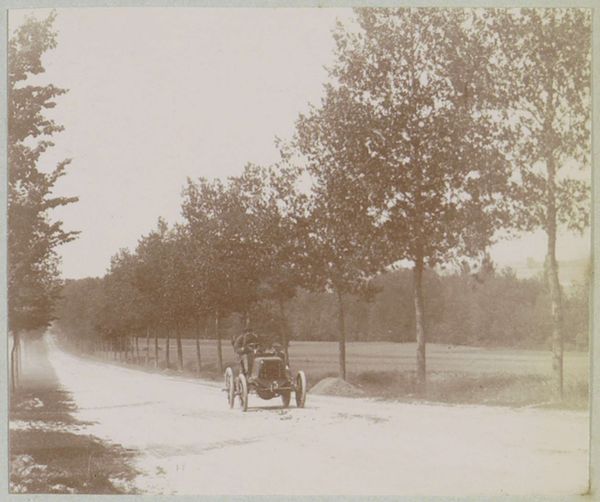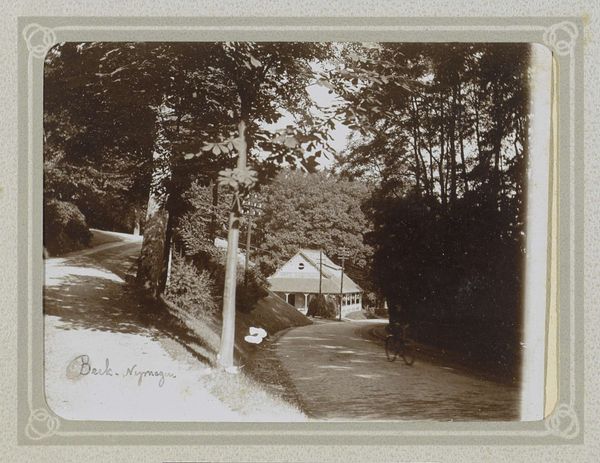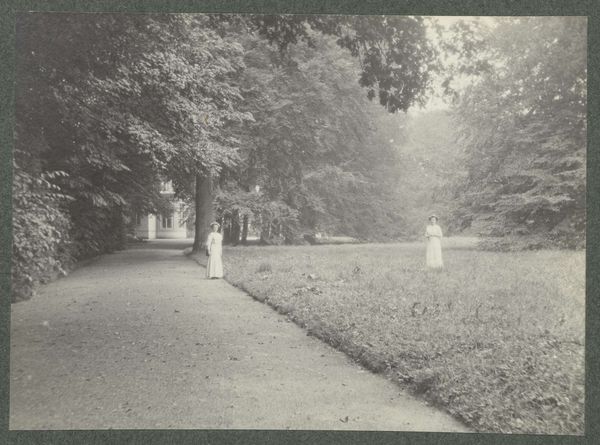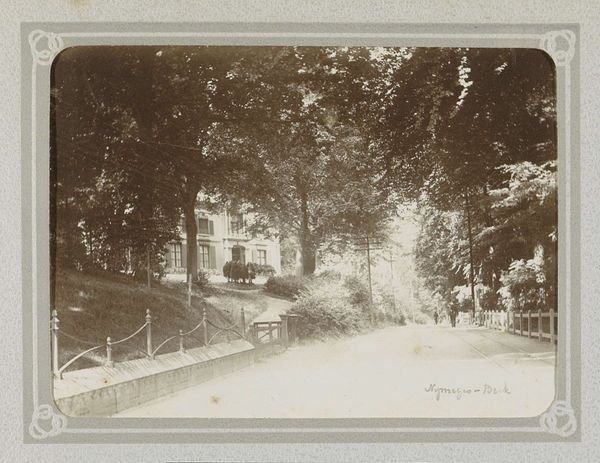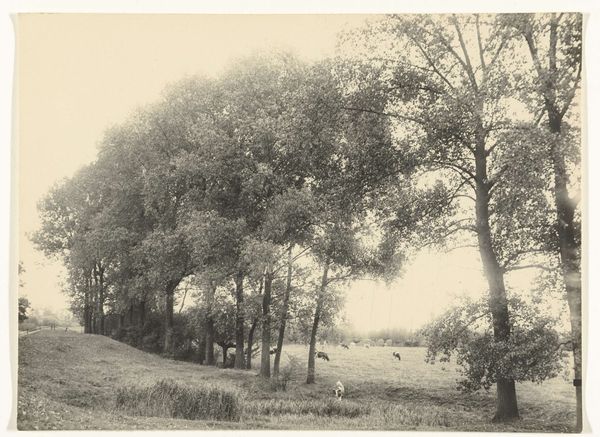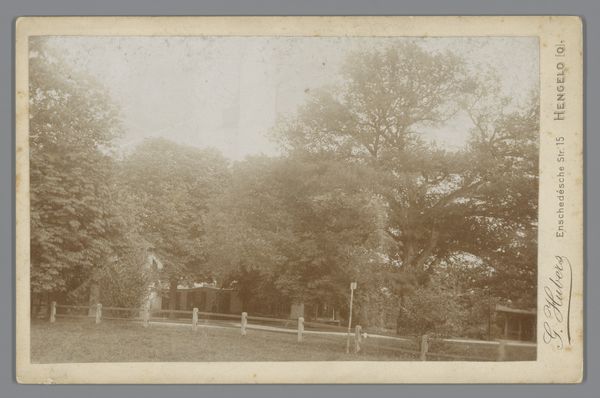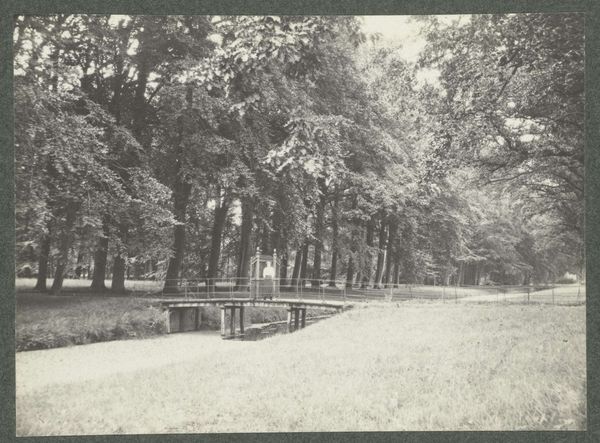
#
photo of handprinted image
#
toned paper
#
sculpture
#
white palette
#
charcoal drawing
#
charcoal art
#
unrealistic statue
#
carved into stone
#
watercolor
#
statue
Dimensions: height 81 mm, width 110 mm
Copyright: Rijks Museum: Open Domain
Curator: At first glance, the composition feels almost accidental, snapshot-like. Editor: This vintage print, "Fietsende man en vrouw in Santpoort," was captured by Folkert Idzes de Jong sometime between 1905 and 1907. Immediately, the subdued tones evoke a strong sense of nostalgia. The linear perspective, drawing us into the receding plane, is masterfully executed, especially given the apparent ease. Curator: The bicycles, emerging into view, are potent symbols of freedom and modernity at the turn of the century. Their inclusion transforms a pastoral scene into something more dynamic. Editor: Precisely! Bicycles democratized movement, shrinking distances, embodying progress, while subtly challenging class boundaries and gender roles. They’re positioned deliberately on the left. Note the repetition of vertical lines created by the fence; its hard edge counterpoints the verdant foliage of the forest on the opposite side. The sepia tone speaks volumes too, softening reality, idealizing it perhaps, but grounding the work, imbuing the entire scene with a romantic sensibility. Curator: The depth of field, though somewhat limited by today’s standards, focuses attention beautifully on the central figures. This controlled recession encourages our eyes to move into the heart of the scenery. This is not merely a snapshot, it's a very thoughtful, deliberately framed construction. Editor: Agreed. The composition itself holds meaning. This print captures a pivotal moment. A sense of both possibility and poignant impermanence pervades, particularly as this was on the brink of huge socio-political and technological change in Europe. We, viewers, know that history, and its shadow gives the images an added melancholy. Curator: Considering the balanced contrasts and visual depth, one can argue it’s less a representation of an era and more an idealized statement, carefully and creatively positioned. The relationship between mass and the natural world, between movement and stasis is, undeniably, masterful. Editor: A final, enduring observation: The choice of medium and the printing style, even as it limits colour, amplify this nostalgic sense so completely. The emotional effect resonates profoundly with present-day sentiments.
Comments
No comments
Be the first to comment and join the conversation on the ultimate creative platform.
